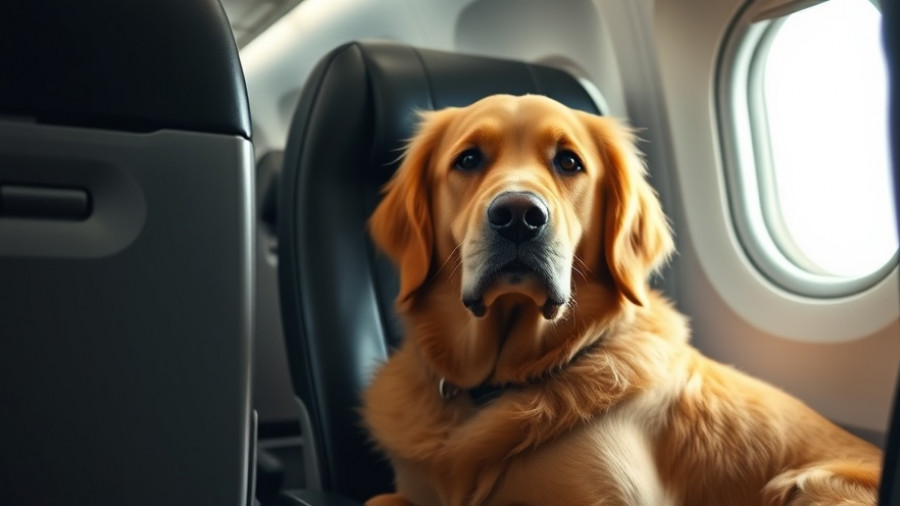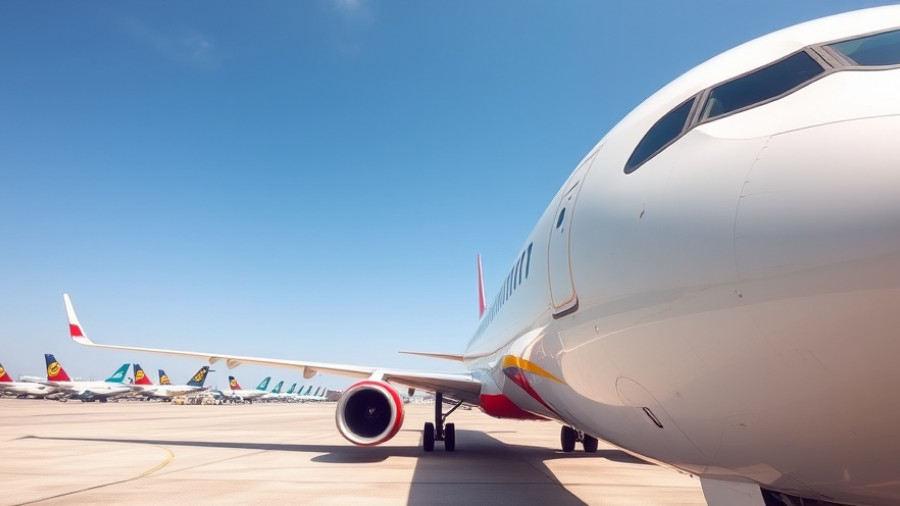
The Court’s Decision: Pets as Baggage
The European Union's top court has declared that pets traveling in the cargo hold of airplanes are officially classified as baggage. This landmark ruling primarily emerged from the case of Mona, a beloved dog lost by Spanish airline Iberia while en route from Buenos Aires to Barcelona. The court's decision means airlines, including Iberia, are not obligated to pay higher compensation for lost pets, prompting a broader discussion among pet owners about the implications of this classification.
A Heartbreaking Journey: Mona’s Story
Mona’s original journey was filled with hope and excitement. However, it took a tragic turn when she escaped during boarding. Her owner, Grisel Ortiz, witnessed the frantic chase of three vans attempting to capture the dog as she bolted across the runway. For Ortiz, this situation went beyond just a legal dispute—it was a devastating emotional trauma. "Many people laugh because they don’t understand what Mona means to me," she shared. This story highlights the often-overlooked emotional bonds between pets and their owners, further emphasizing the sorrow that accompanies such losses.
The Broader Implications for Pet Owners
With this ruling, pet owners must consider the risks associated with traveling by air with their furry friends. The court acknowledged that pets, despite being precious family members, fall into the same legal category as luggage, a distinction that may seem trivial to those who do not fully grasp the depth of human-animal relationships. Moving forward, travelers might need to weigh their options: is flying with their pets worth the potential heartbreak? This might lead to growing interest in alternative means of transportation that offer safer accommodations for pets.
Legal Perspectives: What This Means for Airlines and Travelers
The ramifications of this ruling extend well beyond individual cases like Mona's. The court explained that airline liabilities for lost pets correspond to those for lost or damaged luggage. This means that if a pet goes missing or dies during travel, compensation will be limited, with the possibility of increasing liability subject to special declarations and additional fees. This ruling could inspire new dialogues about humane treatment and the protection of animals within the airline industry. Are airlines now more responsible for ensuring pet safety, or has the ruling effectively absolved them of that duty?
Future Steps: Navigating Air Travel with Pets
As a pet owner, it is crucial to stay informed and proactive about regulations surrounding air travel with animals. Seeking airlines with robust pet policies, understanding the conditions of transport, and considering travel insurance that covers pets can be pivotal in ensuring their safety. Additionally, communicating clearly with airline staff regarding special needs for your pet may provide added peace of mind during the journey.
Advice for Concerned Pet Owners
To avoid potential heartache, pet owners might consider several practical tips when preparing for air travel. Firstly, ensure that pets are healthy enough to fly by visiting a veterinarian to get a health check-up. Secondly, researching pet-friendly accommodations and transportation options can provide alternative peace of mind, making it easier to travel without sacrificing your beloved pet’s well-being. Lastly, always think ahead about what to do in case of emergencies—having a plan in place can make all the difference.
A Call to Action for Pet Owners
With the emotional weight of these changes, it’s time for pet owners to advocate for better treatment of their furry companions in the air travel industry. By sharing stories and experiences, owners can push for more humane policies and greater accountability from airlines. The recent court ruling has sparked a necessary conversation about the value and care of pets as they navigate the airways, reminding all of us of the unique bonds that animals share with their humans.
 Add Row
Add Row  Add
Add 




Write A Comment